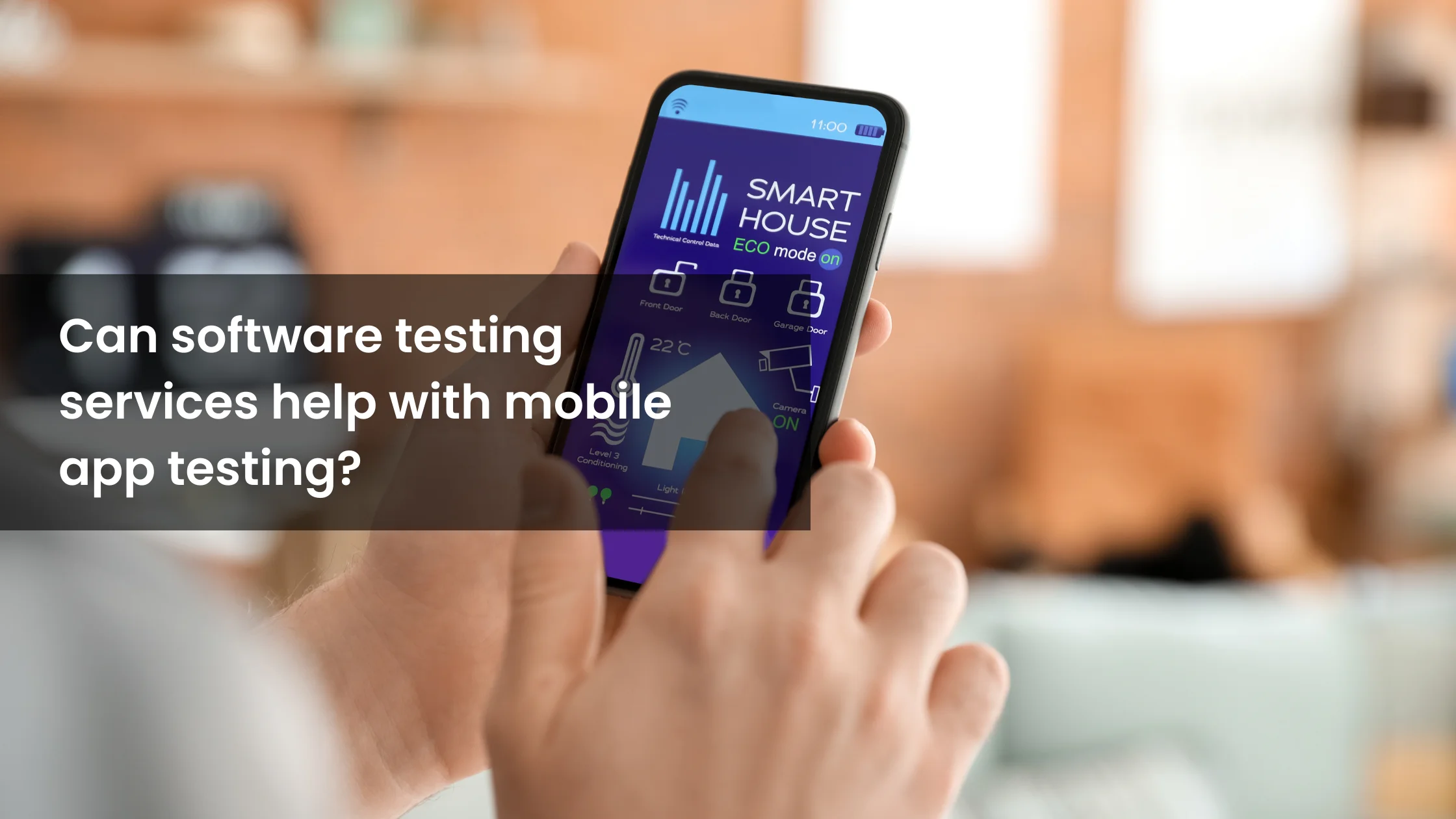In today’s competitive and fast-paced digital environment, software Quality Assurance (QA) is vital for ensuring robust, secure, and high-performing applications. However, building and scaling an in-house QA team requires significant time, resources, and expertise — something many startups and enterprises may find challenging.
That’s where QA outsourcing comes into play. By leveraging external QA partners, organizations can ensure consistent product quality while saving on costs, reducing time-to-market, and tapping into global QA expertise.
This article explores what QA outsourcing is, its benefits, when it’s most effective, and how it supports both emerging startups and established enterprises in delivering better software, faster.
What is QA Outsourcing?
QA outsourcing refers to the process of hiring external service providers to handle all or part of your software testing efforts. These services may include:
- Manual and automation testing
- Performance and security testing
- Test planning and case design
- Regression, API, and cross-platform testing
- Reporting and bug tracking
QA vendors often operate remotely and integrate directly into internal workflows using modern collaboration tools and agile processes.
Why Startups and Enterprises Choose QA Outsourcing
The motivations behind outsourcing QA vary based on business maturity and goals:
Startups Outsource QA To:
- Launch products faster with minimal QA overhead
- Focus internal teams on core product development
- Avoid infrastructure investment and hiring delays
- Leverage early access to testing tools and frameworks
Enterprises Outsource QA To:
- Scale testing across large, distributed teams
- Manage complex testing scenarios (multi-platform, compliance, performance)
- Embed automation within CI/CD pipelines
- Gain access to specialized domain or legacy system testers
Key Benefits of QA Outsourcing
1. Access to Skilled QA Talent
Tap into a global talent pool of test engineers, automation experts, and certified professionals without long hiring cycles.
2. Cost Efficiency
- Save on full-time salaries, training, and benefits
- Avoid licensing costs for tools and test environments
- Flexible engagement models: hourly, monthly, or project-based
3. Accelerated Time-to-Market
Dedicated QA teams work in parallel with development, enabling quicker release cycles and fast feedback loops.
4. Advanced Tools and Frameworks
QA vendors often bring pre-configured environments and tools, such as:
- Selenium, Cypress, Postman
- JIRA, TestRail, Jenkins
- BrowserStack, LambdaTest, real-device labs
5. Scalability
Scale QA efforts up or down based on development phases, release sprints, or testing complexity.
6. 24/7 Test Coverage
Offshore or distributed QA teams provide continuous testing, speeding up bug resolution and reducing project delays.
7. Enhanced Focus on Product Innovation
With QA offloaded, internal teams can stay focused on innovation, growth, and customer experience.
8. Improved Product Quality
Outsourced QA teams deliver in-depth test coverage, comprehensive reports, and reduced defect leakage — leading to a more stable and secure product.
When Does QA Outsourcing Make the Most Sense?
| Scenario | Why Outsourcing Helps |
|---|---|
| Rapid startup scaling | Fast execution without hiring delays |
| Product nearing launch | Quick testing cycles for bug discovery |
| Testing across devices/platforms | Access to cloud-based real-device labs |
| Legacy system modernization | Specialized testing for compatibility and integration |
| Internal QA skill/resource shortage | Instant access to expert QA teams |
| Tight timelines with parallel builds | Dedicated QA bandwidth for simultaneous delivery |
Common QA Outsourcing Models
| Model | Description |
|---|---|
| Project-Based | Defined scope and timeline — ideal for short-term releases or MVPs |
| Dedicated QA Team | Full-time testers embedded into your SDLC process |
| On-Demand QA | Flexible resource allocation as per requirement spikes or regression cycles |
Is QA Outsourcing Secure and Reliable?
Yes — especially when you partner with reputed QA companies. Trusted QA vendors follow:
- NDAs and data confidentiality protocols
- ISO-certified (e.g., ISO 27001) secure practices
- Role-based access controls and encrypted environments
Transparent documentation and reporting workflows
Tip: Always choose partners with proven case studies, domain experience, and globally recognized certifications.
Key Takeaways
- QA outsourcing enables startups and enterprises to accelerate delivery without sacrificing quality
- It reduces cost overheads while providing access to elite QA expertise and tools
- Outsourced teams ensure flexibility, scalability, and security — critical in today’s software-driven world
- The right QA partner becomes an extension of your team, improving collaboration, feedback, and results
Frequently Asked Questions (FAQs)
Q1: Is QA outsourcing suitable for small startups?
A: Yes. It allows startups to release faster while keeping operational costs low and quality high.
Q2: Can outsourced QA teams collaborate with our in-house developers?
A: Absolutely. QA teams typically integrate with your tools and processes — such as Slack, JIRA, GitHub, or Azure DevOps.
Q3: How do I ensure quality in outsourced QA?
A: Look for detailed SLAs, transparent reports, test coverage plans, and teams with certified professionals.
Q4: Will outsourcing compromise data security?
A: No — not with a trusted vendor. Use NDAs, secure test environments, and certified QA providers (e.g., ISO 27001).
Q5: What’s the best outsourcing model for agile teams?
A: A dedicated QA team model is best for agile teams needing daily stand-ups, sprint planning, and fast turnaround.
Q6: Can outsourcing support test automation too?
A: Yes. Many QA providers specialize in setting up and managing automated testing frameworks integrated into CI/CD.
Q7: How fast can QA outsourcing be onboarded?
A: Within days. Most QA providers have quick onboarding processes and adaptable resource pools.
Q8: What industries benefit most from outsourced QA?
A: Fintech, eCommerce, healthcare, EdTech, SaaS — any sector requiring reliable, secure, and scalable software.
Conclusion
Outsourcing QA is no longer just a cost-saving tactic — it’s a strategic move that enables startups and enterprises to deliver high-quality software, faster. From early-stage MVPs to enterprise-grade platforms, outsourced QA ensures better test coverage, faster releases, and reduced risks.
At Testriq QA Lab LLP, we help organizations build scalable, secure, and cost-effective QA solutions with domain expertise, automation frameworks, and round-the-clock support.
 Ever wondered what goes into making sure your desktop applications run like a well-oiled machine? Well, buckle up, because we're about to dive into the essential tests that keep your desktop software smooth, secure, and super efficient. Whether you're a developer, tester, or just someone curious about the magic behind the scenes, this guide is for you!
Ever wondered what goes into making sure your desktop applications run like a well-oiled machine? Well, buckle up, because we're about to dive into the essential tests that keep your desktop software smooth, secure, and super efficient. Whether you're a developer, tester, or just someone curious about the magic behind the scenes, this guide is for you! Hey there, app developer extraordinaire! Are you ready to take your mobile app to the next level? Let's face it, launching an app without thorough testing is like jumping out of a plane without checking your parachute. Scary, right? That’s where software testing services swoop in to save the day, ensuring your app isn't just good, but great. But can these services really help with mobile app testing? Buckle up, because we're about to find out!
Hey there, app developer extraordinaire! Are you ready to take your mobile app to the next level? Let's face it, launching an app without thorough testing is like jumping out of a plane without checking your parachute. Scary, right? That’s where software testing services swoop in to save the day, ensuring your app isn't just good, but great. But can these services really help with mobile app testing? Buckle up, because we're about to find out!